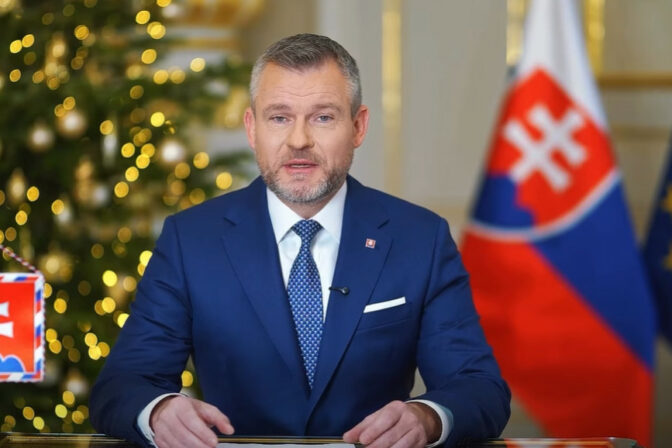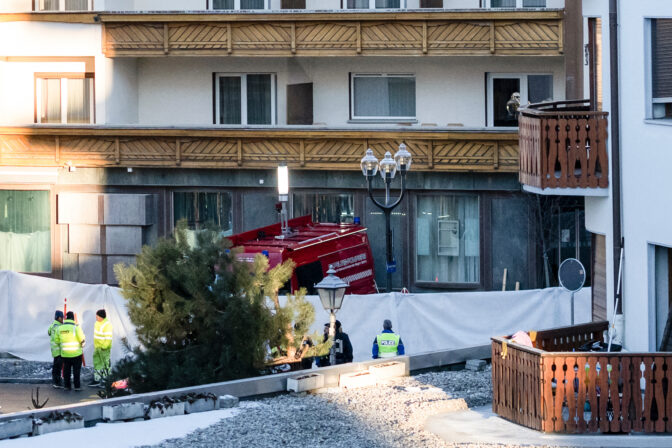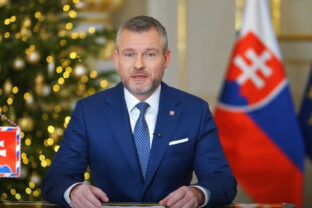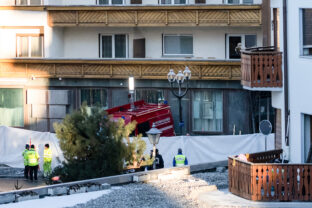BRATISLAVA, October 6, (WEBNOVINY) — The neoliberal party SaS, a member of the ruling coalition in Slovakia, will likely vote to extend the EFSF’s lending capacity at last. Chairman of the SaS deputy caucus, Jozef Kollar, confirmed this information at the session of the Parliamentary European Affairs Committee on Thursday. The party conditions its support by establishment of a commission with a representative of every parliamentary party, holding the right of veto. No guarantee would be extended to any country from the rescue fund as long as the commission does not approve the assistance.
The decision of the commission would be binding for Slovakia’s envoy to the EFSF Martin Bruncko, who would then vote on the financial assistance provision to individual countries. Kollar has not confirmed whether the entire deputy caucus approves of this solution. The Coalition Council is slated to debate further steps later on Thursday. “This solution is negotiable and acceptable but [our] partners must provide their position over it. No matter what the final decision of the today’s Coalition Council will be, the SaS negotiating team that attends Coalition Council sessions will vote in chorus, as one team,” he noted.
Finance Minister Ivan Miklos welcomes the attitude of the SaS. “I greet this, let’s seek local procedures. We have given you two proposals, you’ve rejected both, but all right, great,” he noted. MOST-HID leader Bela Bugar has learned about Kollar’s offer today and agrees. “This is responsible of Mr. Kollar, if the whole SaS club shares this opinion, we can reach an agreement,” he told SITA newswire.
Opposition SMER-SD leader Robert Fico reacted by saying that the SaS has prepared one of the biggest frauds for its voters. Fico noted that the party has not fulfilled a single election promise. The party leader warned that his party would never nominate representatives to such a commission. Thus, the SaS will have the whole bailout fund in its hands practically.
The Deputy Parliament Speaker announced that SMER-SD MPs would not participate in the October 11 vote because they do not want to lie to foreign partners. “It is another dastardly proposal, harming Slovakia’s reputation abroad,” he complained. Fico reminded that SaS has adopted a similar proposal as SDKU-DS forwarded some time ago, while Richard Sulik himself called it a con trick. People must realize that the parliament will vote on a full-fledged rescue mechanism including all financial obligations. He concluded that SaS pursues no values, just the value of power and participation in privatization.
The opposition SNS has joined its former coalition partner in the criticism of SaS. „SNS appreciates that this Internet political party is unveiling its character alone and that we do not have to point to it every day. As SaS lied to its voters ahead of the elections and rejected million-euro limousines, which its representatives shamelessly use, so it is lying flagrantly now,” party leader Jan Slota rebuked the coalition member for its opinion U-turn on the EFSF. SNS dislikes that SaS firstly dismissed the rescue fund and prepared a great campaign against it but when the issue becomes thornier and the parliamentary vote on the extended EFSF’s lending capacity comes closer, the neoliberal party has revised its attitude. Slota indicated that some other interests could have triggered the U-turn.
The Institute of Economic and Social Studies (INESS) on Thursday provided its standpoint in which it writes that Slovakia should reject the planned capacity increase and extension of competence. The INESS argues that resolving the crisis via the EFSF may be extremely disadvantageous for Slovakia. “Hypothetically, if the EFSF guarantees are used in the proposed form, their funding will require the highest tax and levy hikes of all euro zone countries, by up to 35 percent. A thousand euros of debt redistributed within the EU will hit Slovaks two or three times more than, for instance, Germans. We will have to cover the future costs ensuing from the EFSF via a tax increase two times stronger than, for example, neighboring Austria,” the institute warns in the issued position.
SITA












